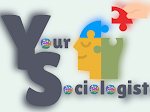How Social Is Emotional Intelligence?
The conquest of the outer world does not free the species from the inner world, which made its evolution possible.
Social life is rooted in emotion and is basic to survival. A comprehensive biology must surely take account of one of man’s fundamental properties his social nature. - David A. Hamburg
Emotions lie at the center of social experience, providing us with meaning in our lives. Indeed, most of what we do in social life, as well as how we do it, is influenced and informed by emotions and the activating social conditions that generate them. Since its inception, the idea that emotions (and meaningful individual differences) have a role in social life is one of the factors that has fueled interest in emotional intelligence. Emotions are deeply embedded in social contexts, reflecting and shaping social processes. Certain emotions (e.g., love, shame) seem to come to life within interpersonal and relational settings. Emotional encounters, however short-lived, typically involve affective involvement with others in a relationship, often supplying some of the most important classes of emotion-inducing events. What people tend to get emotional about can relate to various levels of social interaction, such as the interpersonal (e.g., what others in our surroundings do), group (e.g., what the group does), and cultural level (e.g., norms defining what is of personal concern and emotional significance).
Emotions are frequently evoked by social events, and emotions in turn influence the course of social reactions. Jealousy, for example, communicates that one feels replaced in a social relationship. It also expresses the desire to be reintegrated into this social relationship. By contrast, sadness, following personal loss, communicates to others the need for immediate social support. Of course, the specific nature of the social relationship between individuals in a social encounter determines, in part, the specific emotions aroused. For example, ridicule by another person can be met with shame, defiance, or disregard—all depending on the nature of the relationship between parties and the current state of the interaction.
Emotions serve social and communicative functions, conveying information about people's intentions and both enabling and coordinating social encounters. Clearly, people need to process emotional information and manage emotional dynamics intelligently to navigate the social world, particularly since positive emotion is associated with sociability and negative affect keeps others at bay. It follows that emotional competencies are expected to be of pivotal importance for social interactions. Indeed, research provides some evidence for the critical role of EI in social relations and adaptation. Supportive data have been obtained in studies using both questionnaires and objective measures of emotional intelligence. Generally, questionnaire scales predict various facets of life satisfaction, including social satisfaction. Schutte et al., for instance, reported that EI predicted various self-reported criteria, including empathic perspective taking, social skills, cooperative responses, and satisfaction with close relationships. Similarly high EI adolescents who say they are good at managing other people’s emotions constructively report having more social support and satisfaction with that support, potentially protecting them from depression. Work on temperamental factors in infants and children similarly indicates that richer emotional competencies are related to prosocial behavior and better adaptation.







0 Comments